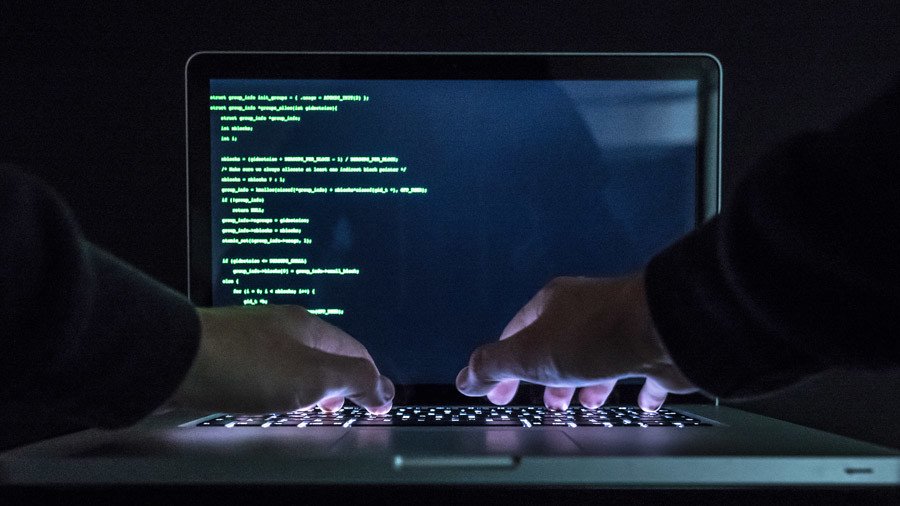Pro-ISIS hackers could be Russians, claims UK intelligence report... citing single Telegraph article

A parliamentary report on UK intelligence speculates that Russian hackers could be conducting ‘false flag’ cyber-attacks by posing as Islamic extremists. Its evidence? One article in the Telegraph newspaper.
The heavily redacted report cited an October 2017 Telegraph article when noting that “some commentators have speculated that certain cyber-attacks, which have been widely reported in the media as being Russian… have been ‘false-flagged’ as Islamist extremist attacks.”
The attacks in cited were on the US Central Command’s Twitter account and another against TV5Monde’s network, though the report offered no evidence of Russia’s involvement beyond the article cited.
The Parliament’s Intelligence and Security Committee released its 2016-17 oversight report just ahead of Christmas. The report details the workings the nation’s three chief spy services: MI5, SIS (MI6) and GCHQ. Various witnesses from the agencies gave evidence to the committee, though many of their statements were redacted.
While a large section of the report was dedicated to detailing the agencies’ work against Islamic extremists, a significant portion analyzed the perceived threat from Russia, namely from its alleged use of cyber-attacks and propaganda campaigns.
The report noted that Russia’s “cyber-activity” suggests they are “no longer restricted by diplomatic and geopolitical consequences that would follow should the activity be uncovered.” It also cites the alleged hacking of the Democratic National Committee (DNC) in the US by Russia, stating that “such escalation clearly indicated that Russia was no longer concerned about its activities remaining covert, and that it was adopting a more brazen approach to its cyber activities.” An explanation as to why Russia would deem it desirable to be less “covert” in is alleged espionage activities was not contained in the report.
More generally in regards to Russia, the report said “among SIS and GCHQ’s priorities is understanding the Kremlin’s objectives and intentions.”
“MI5’s main aim is countering Russian Intelligence Service activity in the UK,” it said, and understanding “Russian military capabilities is another important requirement.”
As well as Russia, the report contained analysis of other state actors, including Iran, China, and North Korea, along with details on the threat posed by Islamic extremists.
An MI5 officer giving evidence to the committee stated that the threat from Islamic extremists is at “a pace we have just never experienced before.”
The report noted: “The scale of the current threat facing the UK and its interests from Islamist terror groups is unprecedented… This threat is predominantly driven by the activities of [Islamic State, IS, ISIS] in Syria and Iraq, which seeks to maintain the group’s image and narrative of success in the face of military losses.”
In dealing with Islamic extremists, the report cited “areas of mutual intelligence and security interest” between the UK and Russia. “In May 2013 the then Foreign Secretary wrote to the Committee to inform it that a channel of communication had been reopened with the FSB (Russia’s domestic security service) in relation to security measures for the Sochi Winter Olympics,” it said.
The committee concluded that “whilst collaboration with Russia on matters of mutual intelligence interest would be difficult, we agree with SIS that limited lines of communication should be maintained, although a delicate balance is needed.”















